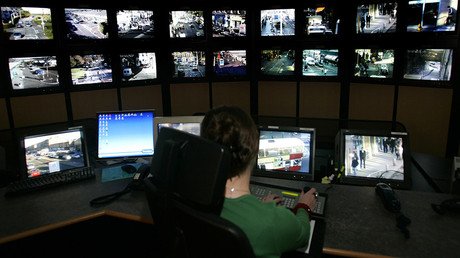Terrorists will ‘always get through the net,’ ex-security chief tells RT
Terrorist attacks should be accepted as “a norm” and no matter how hard security services work to foil plots, some will “always get through the net,” former UK counterterrorism chief Chris Phillips told RT.
Phillips, who was head of the UK’s National Counter Terrorism Security Office, says the “sheer weight” of numbers of potential terrorists is stretching police forces around the world.
“It doesn’t matter how many police officers you’ve got, the numbers are so great of people that could go bad on us – there’s a good likelihood that you’re going to miss at least one threat.
“I think the worrying thing is that these attacks seem to be accelerating,” he added.
“It’s not just a UK problem, this is a worldwide problem. When Manchester happened three other big terrorist attacks happened in other parts of the world, and Baghdad yesterday was hit by a massive car bomb. This is a big problem for the world.”
Phillips says as intelligence “comes and goes,” police and security services are forced to decide what information to pursue at any given time.
“The one thing you have to do is learn from mistakes. When terrorist attacks happen there’s pretty much always some kind of failing somewhere but there are some reasons behind that.
“The MI5, security services and police have stopped five attacks since the Westminster attack just a month ago. So they’re working incredibly hard, [but] things will always get through the net,” Phillips said.
“It’s terrible so many people died but unfortunately the drumbeat of these attacks are happening at such speed now that I think we’re going to have to get used to this as almost a norm.”
His comments come as Home Secretary Amber Rudd said missed chances to catch suicide bomber Salman Abedi will be investigated, following claims that US officials warned MI5 in January that he was planning an attack.
The FBI had allegedly told British security services that Abedi was part of a North African terrorist cell based in Manchester. US federal agents had apparently been monitoring Abedi since 2016 and passed on information they had gathered in Libya, where his parents are from.
“Following a US tip-off, Abedi and other members of the gang were scrutinized by MI5. It was thought at the time that Abedi was planning to assassinate a political figure,” a source told the Mail on Sunday.
“But nothing came of this investigation and, tragically, he slipped down the pecking order of targets.”
Alongside any intelligence sharing, Abedi was reported to authorities by members of the local community at least five times in the five years before the suicide attack on Manchester Arena that killed 22 people, the Telegraph reports.














